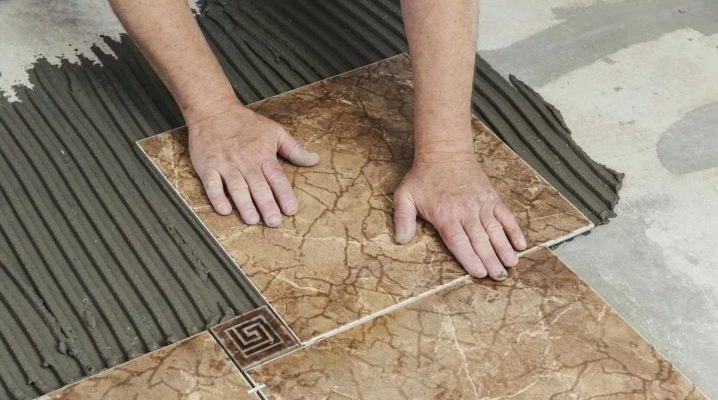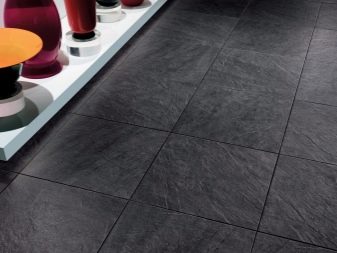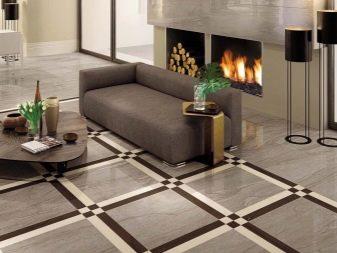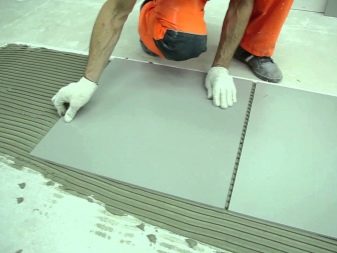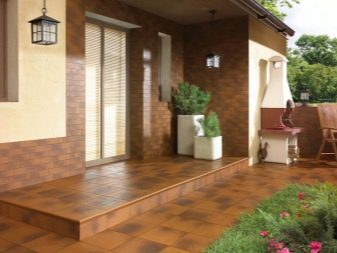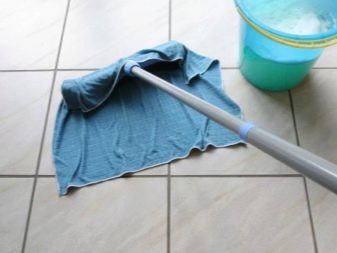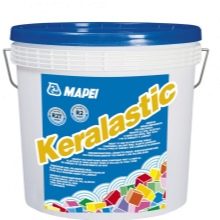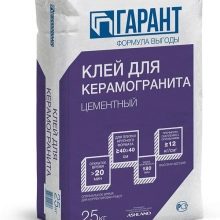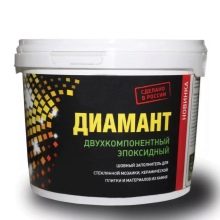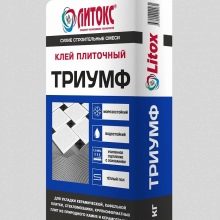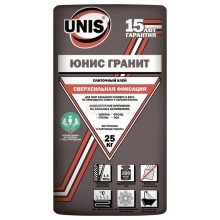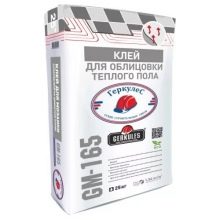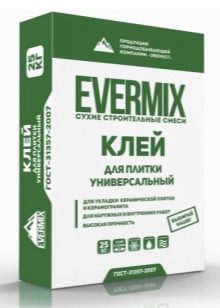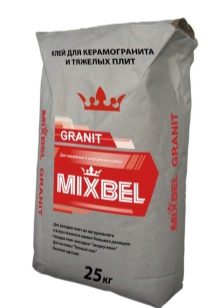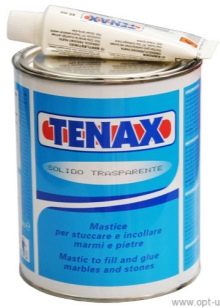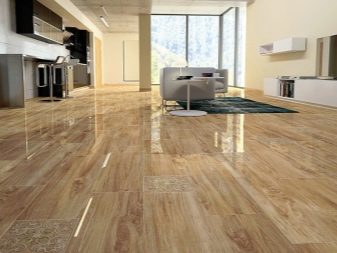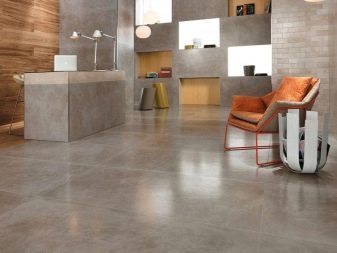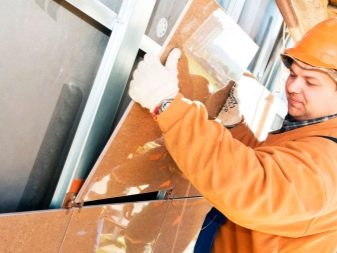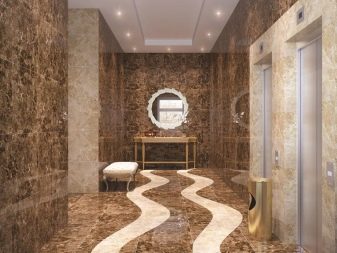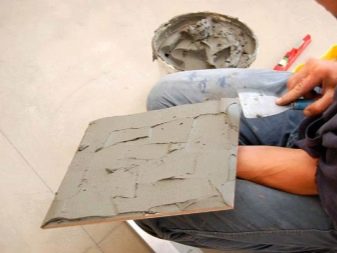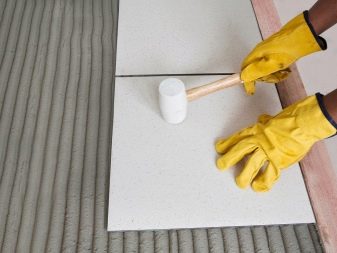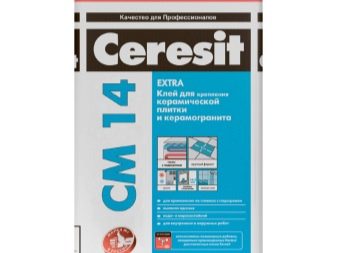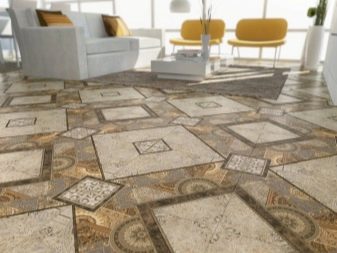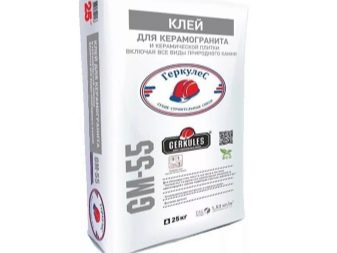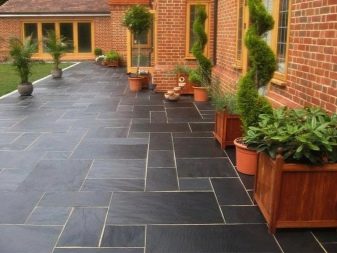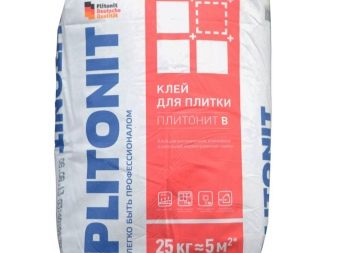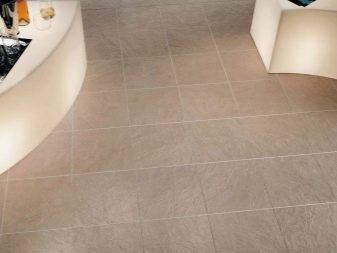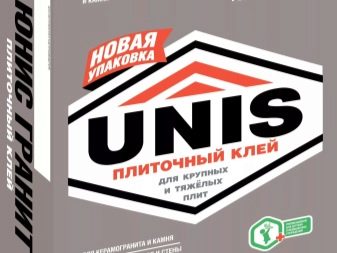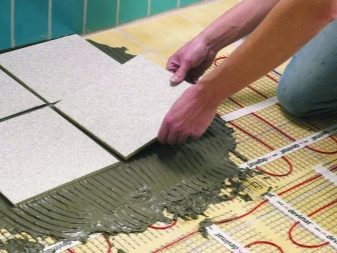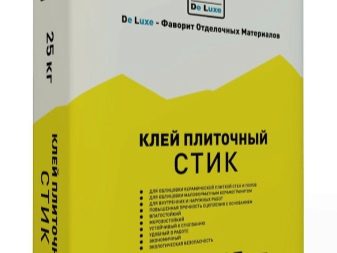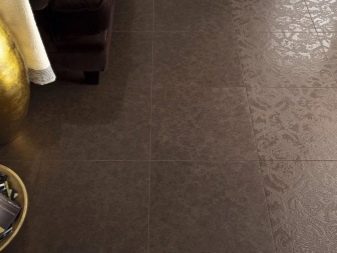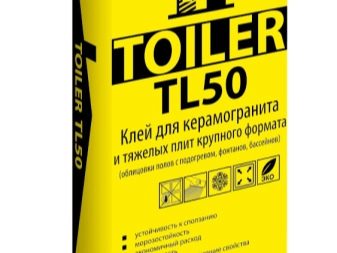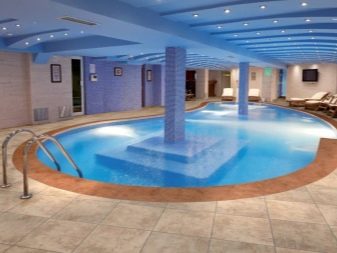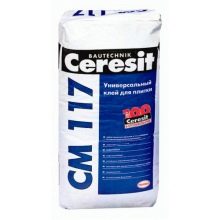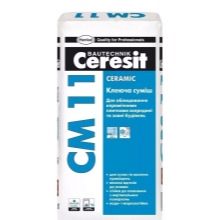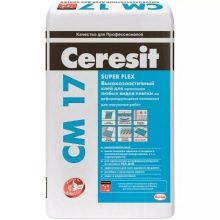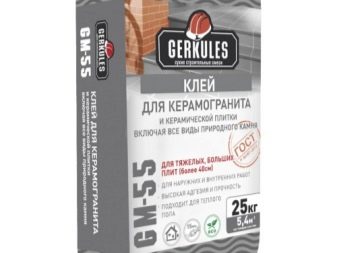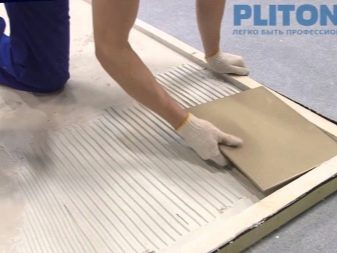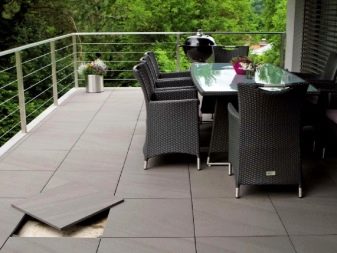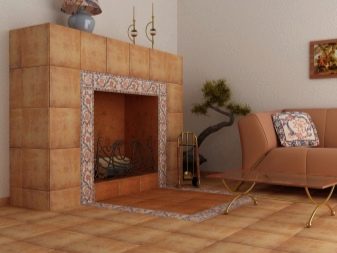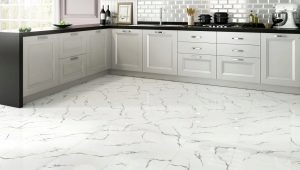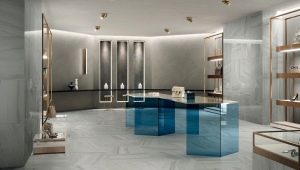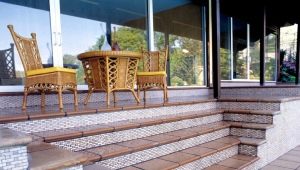Glue for porcelain tiles: the rules of choice
The use of cement mortar has long been an outdated method of laying, not suitable for porcelain. Good glue is the key to success in quality work. The durability of the masonry will depend on the properties and characteristics of the adhesive layer.
Special features
Special adhesives for porcelain stoneware have a number of features compared to conventional mortar:
- Increased adhesion. Porcelain tile has a very dense structure, which is difficult to absorb the usual compositions. Special glue adheres perfectly to both the tile and the surface to which it will be glued.
- Plastic. This feature provides an opportunity within 15 minutes to adjust the position of the tile after laying. Only quick-drying adhesive mixtures cannot be adjusted.
- Frost resistance It makes it possible to apply glue not only for internal but also for external work.This indicator is very important, as it allows to avoid the formation of cracks and the breaking off of the tile in cold weather.
- Ecological the purity of the adhesive for porcelain is due to the absence of asbestos in the composition of the fibers.
- Moisture resistance. Due to the fact that porcelain tile does not absorb water, this feature prevents wetting of the adhesive layer and its destruction.
- Heat resistance allows the use of porcelain tiles for facing stoves, fireplaces and over the warm floor.
Kinds
The range of glue for porcelain is quite diverse. All adhesives for porcelain tiles can be divided into three main groups:
- Single component. These are ready solutions in the form of the glue paste which is not demanding a batch and ready to work. This mixture is very elastic and does not dry out for a long time. One-component glue is packed in plastic buckets and their cost is much higher than dry mixes.
- Bicomponent. Such tile adhesives are prepared independently immediately before starting work. The prepared mixture is considered quick-drying, so you need to knead it in portions. Such a mixture is produced on epoxy or polyurethane basis.
- Cement. Mixtures are made on the basis of Portland cement and plasticizers, which do not allow them to dry quickly.
Also, the adhesive varies according to the working conditions:
- Exterior work.
- For installation work of a heat-insulated floor indoors.
- Frost-resistant and moisture-resistant composition of accelerated setting.
- Universal adhesive compositions with high elasticity. Designed for wall and floor work.
- For heavy slabs and porcelain tiles.
- Polyester adhesives for fast bonding.
Relevant information manufacturers label packaging.
Criterias of choice
Experts advise choosing glue for porcelain stoneware according to the following criteria:
- Tile parameters. For large-format porcelain tiles, as well as for natural stone or granite, compositions are needed that can withstand heavy loads.
- Installation conditions and operation of porcelain tile, including the base material under the tile. The basis may be brick or block brick, plywood. Also, porcelain can be glued over the warm floor, choosing glue with high elasticity.
- The required thickness of the adhesive layer.
In this case, one common rule remains unchanged for all adhesives - it is better to choose the glue that is convenient in operation.
Also, professionals note the fact that the adhesive composition (single-component or two-component) compared with cement mortars There are a number of advantages:
- longer service life of the finish;
- excellent hydro and frost resistance;
- high strength setting with materials;
- suitable for both interior and exterior.
An important criterion is the consumption of glue per 1 m2, which usually depends on several factors:
- The size of the selected tile. Porcelain tile is a rather heavy material, and the greater the thickness of the tile, the thicker the glue pad should be.
- Type of blend. Cement based mixture is consumed faster than epoxy. Since resin-based glue allows you to apply a layer, for example, on the floor, only 1 mm thick.
- Base condition. The more irregularities on the wall or floor, the higher the consumption of glue.
- The technique of laying and professionalism tiler.
Manufacturers
Currently, there are several domestic and foreign manufacturers in our market offering glue for porcelain stoneware.
Ceresit
Name: Glue for tiles and porcelain tiles Ceresit CM 14 Extra 25 kg
Composition with a cement base, reinforced with special additives. Designed for work with ceramics, ceramic-granite plates on cement base with parameters up to 450x450 mm on walls and floors when working inside, including in places with excessive hydro indicators, on warm floors, front surfaces of buildings, resistant to deformations of concrete and cement foundations. SM-14 adhesive is elastic, has a high degree of adhesion, is water and frost-resistant, resistant to slipping tiles, combined with waterproofing.
"Hercules"
Name: Glue for Hercules porcelain tiles GM-55 25 kg
"Hercules" is a polymer adhesive for stone and porcelain. It is characterized by excellent adhesion to multi-surface bases. (brick, concrete, cellular concrete, plastered), and also it does not allow the plates to move. Resistant to loads in the dynamics, is highly resistant to frost and atmospheric phenomena. High strength characteristics make it possible to use it for cladding elements close to the building, such as walkways, stairs and steps.
"Plitonite"
Name: Glue for granite "Pliton" "B" 25 kg
The composition is used primarily for laying tiles on the floor indoors. Works can be performed on concrete, reinforced concrete, cellular concrete, brick, cement, cement-lime and gypsum plaster, as well as on gypsum plasterboard, tongue-and-groove plasterboards.
Unis
Name: Unis "Granite glue for laying heavy plates of porcelain stoneware, ceramics and natural stone 25 kg."
The glue has enhanced strength characteristics, which allows its use when laying plates of increased mass and size, as well as good ductility. High adhesion allows to perform tiled works using the “top-down” method and for complex reasons. The use of glue on heated surfaces, including the “warm floor” system, is widespread. The composition of the adhesive is frost and moisture resistant.
De luxe
Name: De Luxe porcelain tile adhesive.
The composition is used for laying porcelain stoneware on the floor for interior and exterior use. It can also be used as a repair compound to eliminate various surface defects. It shows itself perfectly in the “warm floor” system. Made on the basis of high-quality cement, fractional sand and complex modifiers. De Luxe is plastic, moisture and frost resistant. Provides strong adhesion of the facing to the surface and durability of the coating.
Toiler
Product name: Toiler TL50 Glue for porcelain stoneware and heavy plates of large size 25 kg
The composition is used for facing ceramic granite, both outside and inside. It is great for working with dry bases.: cement and lime-lime plasters, concrete and reinforced concrete. It is used for cladding walls and floors, including heated floors, as well as for swimming pools.
Reviews
According to consumer reviews, when laying ceramic granite it is necessary to use only specialized mixtures. Otherwise, all the work will go down the drain.
Masters for the most part leave positive feedback on adhesive mixtures of the brand Ceresit. In this case, an amendment is made that CM 11 is used for finishing outside and inside on floors without heating. It is necessary to use CM 117 for heated floors, and CM 17 for swimming pools. Ceresit CM 14 glue for porcelain tiles quickly hardens, so grouting can be done after 3 hours.
As a Russian equivalent of imported compounds, the work tested glue for porcelain stoneware of the brand “Hercules”. As a result, its excellent adhesion and low price were found. Glue for granite "Plitonit" is characterized as a composition of high strength.
The company’s assortment contains a large number of varieties of adhesives and in order to choose the composition for the conditions you need, you must carefully use the information in the labeling.
Recommendations
When carrying out finishing works using ceramogranitic material of surfaces exposed to thermal differences (fireplaces, terraces, etc.), it is recommended to use only flexible adhesives. In addition to increased adhesion with the base, they have the ability to restrain the tile in the event of various linear deformations that are formed as a result of periodic changes in temperature. Inelastic adhesives will crack over time, and voids fill with moisture and reduce adhesion. Elastic compositions have the ability to frequently change their geometry.
To obtain a high-quality and reliable lining, it is very important to observe the thickness of the adhesive layer recommended by the manufacturer.
The optimal thickness of modern compositions is mostly not more than 5 mm.. If you apply a thicker adhesive layer, it shrinks, which leads to the formation of voids. For ease of application, it is best to use a notched trowel that evenly distributes the adhesive.
When purchasing the adhesive composition for laying ceramic granite plates on the floor, focus attention on the manufacturer's information about the strength of adhesion to the base. The more the tile weighs, the higher the adhesion index should be. For large format tiles it is also recommended to choose glue with a good adhesive ability.
For more information on laying porcelain stoneware on a thick layer of glue using the guides, see below.
